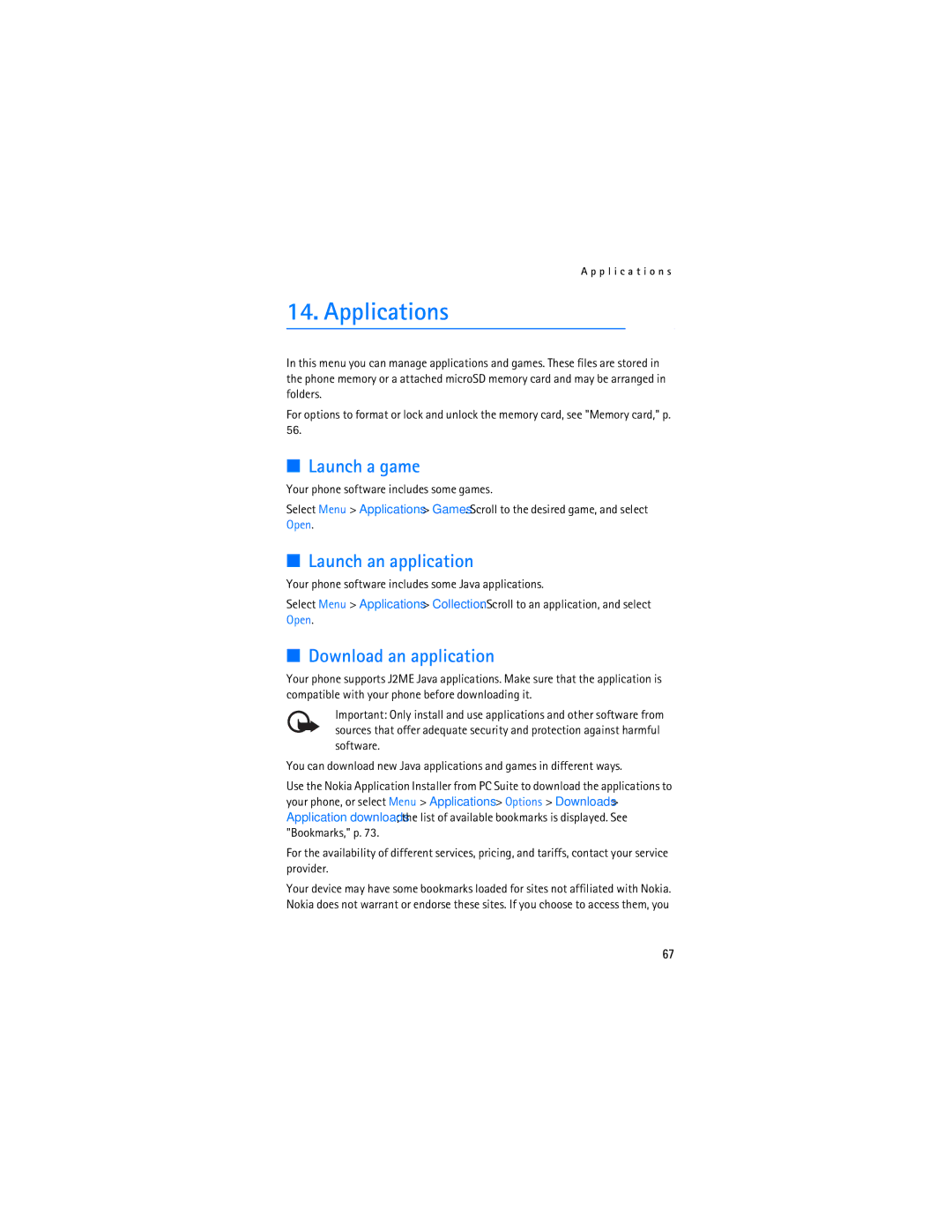6133b, 6126 specifications
The Nokia 6126, introduced in the mid-2000s, is a classic mobile phone that exemplifies the design and functionality of its era. As a compact, clamshell-style device, it quickly gained popularity for its blend of classic aesthetics, user-friendly interface, and essential features.One of the standout characteristics of the Nokia 6126 is its sleek design. The phone features a folding mechanism that protects the keypad and screen when not in use, making it both functional and stylish. The exterior is made from durable plastic, available in a variety of colors, providing users with options to match their personal style.
The Nokia 6126 is equipped with a 2.0-inch TFT display with a resolution of 240 x 320 pixels. The screen offers vibrant colors and clear visibility, making it easy for users to navigate through menus and read messages. The internal layout includes a standard alphanumeric keypad that is well-spaced for comfortable typing and navigating.
In terms of connectivity, the Nokia 6126 supports GSM networks, which were prevalent during its time. It provides users with reliable voice calling, SMS messaging, and basic multimedia capabilities. The phone also features GPRS support for limited data service, allowing users to access the web, albeit at a slower pace compared to modern standards.
The camera on the Nokia 6126 is a modest 1.3-megapixel shooter, suitable for capturing basic photos and video clips, ideal for users who want to document life’s moments without the complexities of more advanced technology. While it may not compete with today’s smartphone cameras, it served its purpose during its launch period.
The Nokia 6126 also includes a range of basic features that enhanced its usability. These include a calendar, alarm clock, and several games, catering to entertainment during downtime. The phone is powered by a removable lithium-ion battery, which provides a solid talk time, allowing users to stay connected throughout the day without frequent recharging.
In conclusion, the Nokia 6126 is a representation of a pivotal time in mobile technology. Its combination of straightforward features, sturdy design, and reliable performance made it a favorite among users looking for an accessible and practical mobile phone experience. Although it has been surpassed by smartphones in terms of technology, the Nokia 6126 remains a nostalgic symbol of mobile communication for many.

